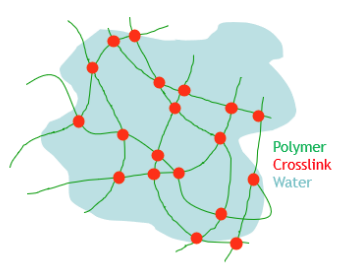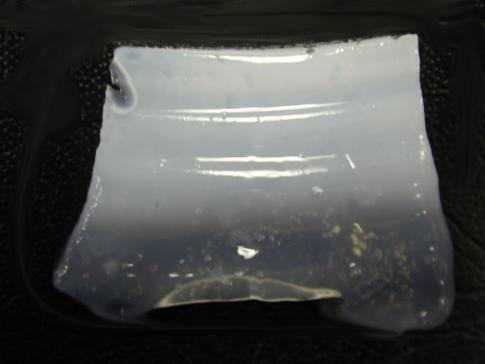Soft solids cover a class of materials that range from conventional elastomers to highly hydrated hydrogels. These materials share a common structure: a crosslinked network that traps and surrounds a mobile phase. This unique composition grants soft solids a wide array of properties and applications across various industries.
Types of Soft Solids
Elastomers
- Flexible crosslinked materials
- Can be deformed and recover original dimensions
- Elastomers are common for grip surfaces, where vibration damping is needed and in applications where compliance is important.
Elastomers are widely used in automotive parts, seals and gaskets, footwear, medical devices, and various industrial applications due to their unique combination of flexibility, resilience, and durability.
Hydrogels and Organogels
- Crosslinked materials with substantial fluid component
- Fluid can be water (hydrogels) or liquids like silicone oil (organogels)
- Properties: damping behavior, permeability
- Applications: medicine, industry, consumer products
Hydrogels are found in the healthcare industry for drug release and lubricious coatings, in the cosmetics industry for creams and shampoos, the food industry as thickeners or gels, the oil industry as drilling muds, and farming as soil humectants.
Hydrogels in Everyday Life
Hydrogels are ubiquitous in our daily lives, often appearing in unexpected places:
- Food: Jello, scrambled eggs, yogurt, mostly formed by proteins
- Human Body: High water content is largely contained or controlled by hydrogels. Key tissues are Muscle, cartilage, organ tissue, vitreous humor, mucus
- Healthcare: Drug release, lubricious coatings
- Cosmetics: Creams, shampoos
- Food Industry: Thickeners, gels
- Oil Industry: Drilling muds
- Agriculture: Soil humectants
Advancements in Hydrogel Technology
The development of synthetic hydrogels began in the late 1940s and continues to evolve, using an expanding range of polymer chemistries and manufacturing procedures. Modern hydrogels offer unique properties:
- Responsiveness to in vivo environmental conditions (e.g., glucose levels, pH)
- Tunable drug release kinetics
- Smart materials sensitive to their environment
Cambridge Polymer Group’s Expertise
Cambridge Polymer Group offers comprehensive services for soft solids:
- Design and development of hydrogels, organogels, and other soft solids
- Formulation of hydrogels with specific properties
- Characterization of chemical, mechanical, electrical, and swelling properties
- Customized test methods tailored for hydrogels (conventional test methods for polymers are generally unsuitable for hydrogels)
Our experience spans multiple sectors:
- Medical device
- Industrial machinery
- Defense
- Consumer products
- Children’s toys
This diverse background allows us to bring a unique perspective to any hydrogel development program.
Why Choose Soft Solids?
Soft solids offer numerous advantages across various applications:
| Property | Benefit |
|---|---|
| Flexibility | Adaptable to different shapes and environments |
| Responsiveness | Can react to external stimuli for smart applications |
| Biocompatibility | Ideal for medical and cosmetic uses |
| Tunability | Properties can be adjusted for specific needs |
| Permeability | Allows for controlled release of substances |
By leveraging the unique properties of soft solids, innovators can create cutting-edge solutions for challenges in medicine, industry, and consumer products. Whether you are developing a new drug delivery system, designing advanced cosmetics, or creating next-generation materials for defense applications, soft solids offer a versatile platform for innovation.


